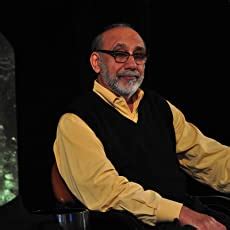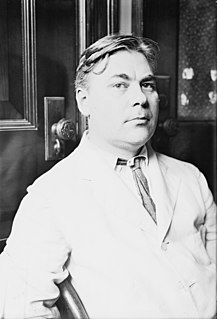A Quote by William Cobbett
Never - no, not for one moment - believe that any human being, with sense in his skull, will love or respect you on account of your fine or costly clothes.
Related Quotes
We are not separate. Our sense of separateness is superficial and exist only in the physical dimension. In our human element, we are not separate; we’re very much connected. Every other human being is just as precious as we are, and worthy of as much respect and love and consideration. This understanding needs to manifest in our conduct in each moment. This is the part of the Work that will transform you.
I had hardly expected so dolichocephalic a skull or such well-marked supra-orbital development. Would you have any objection to my running my finger along your parietal fissure? A cast of your skull, sir, until the original is available, would be an ornament to any anthropological museum. It is not my intention to be fulsome, but I confess that I covet your skull.
There is something really horrific for any human being who feels he is being consumed by other people. I'm talking about a writer's critics, who don't address what you've written, but want to probe into your existence and magnify the trivia of your life without any sense of humor, without any sense of context.
You have to stand up and be a human. You have to honor the man or woman that you are. Respect your body, enjoy your body, love your body, feed, clean, and heal your body. Exercise and do what makes your body feel good. This is a puja to your body, and that is a communion between you and God. . . . When you practice giving love to every part of your body, you plant seeds of love in your mind, and when they grow, you will love, honor, and respect your body immensely.
I do understand what love is, and that is one of the reasons I can never again be a Christian. Love is not self denial. Love is not blood and suffering. Love is not murdering your son to appease your own vanity. Love is not hatred or wrath, consigning billions of people to eternal torture because they have offended your ego or disobeyed your rules. Love is not obedience, conformity, or submission. It is a counterfeit love that is contingent upon authority, punishment, or reward. True love is respect and admiration, compassion and kindness, freely given by a healthy, unafraid human being.
Until you have a son of your own . . . you will never know the joy, the love beyond feeling that resonates in the heart of a father as he looks upon his son. You will never know the sense of honor that makes a man want to be more than he is and to pass something good and hopeful into the hands of his son. And you will never know the heartbreak of the fathers who are haunted by the personal demons that keep them from being the men they want their sons to be.
And we shall most likely be defeated, and you will most likely be victors in the contest, if you learn so to order your lives as not to abuse or waste the reputation of your ancestors, knowing that to a man who has any self-respect, nothing is more dishonourable than to be honoured, not for his own sake, but on account of the reputation of his ancestors.
The opposition is indispensable. A good statesman, like any other sensible human being, always learns more from his opponents than from his fervent supporters. For his supporters will push him to disaster unless his opponents show him where the dangers are. So if he is wise he will often pray to be delivered from his friends, because they will ruin him. But though it hurts, he ought also to pray never to be left without opponents; for they keep him on the path of reason and good sense.
Nietzsche was the one who did the job for me. At a certain moment in his life, the idea came to him of what he called "the love of your fate." Whatever your fate is, whatever the hell happens, you say, "This is what I need." It may look like a wreck, but go at it as though it were an opportunity, a challenge. If you bring love to that moment-not discouragement-you will find the strength is there. Any disaster you can survive is an improvement in your character, your stature, and your life. What a privilege! This is when the spontaneity of your own nature will have a chance to flow.


































